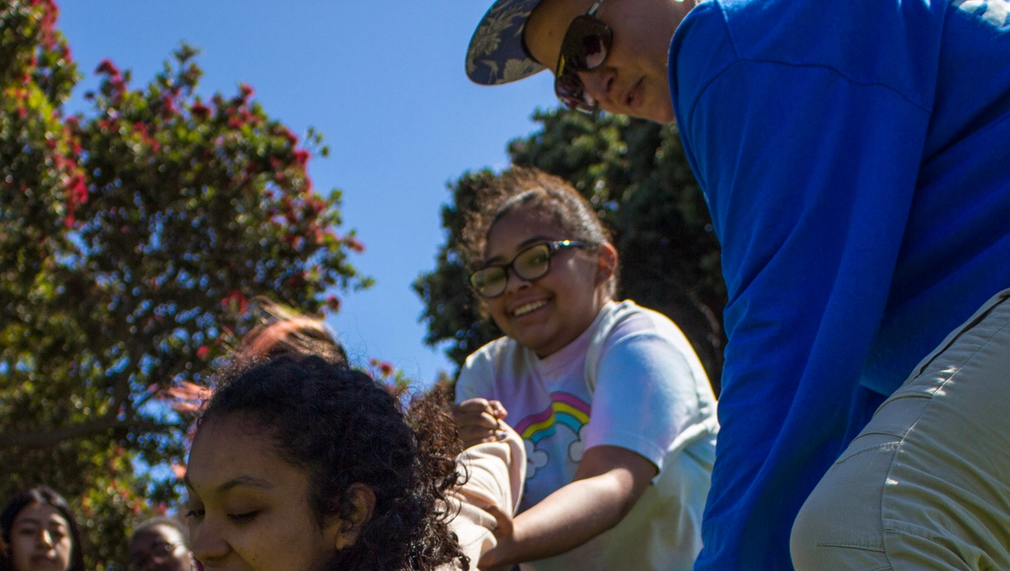Expanding Income Equality through College Access
We’re working to reduce income inequality by increasing access to college and career pathways for young women from underserved areas of LA County. Students enter our programs in the seventh grade, and are supported through college with academic and personal growth workshops, mentorship, college visits, career exploration, college counseling, financial aid, application guidance, and more. They graduate college as confident, career-focused agents of social change, prepared for high-paying jobs and positions of leadership in the community.

What is the primary issue area that your application will impact?
Income Inequality
In which areas of Los Angeles will you be directly working?
Central LA
East LA
San Gabriel Valley
South LA
West LA
In what stage of innovation is this project, program, or initiative?
Expand existing project, program, or initiative
What is your understanding of the issue that you are seeking to address?
Long-term financial stability is especially difficult to achieve for young women of color from low-income backgrounds. In fact, July 2018 analysis by the Pew Research Center found that income inequality for these young women has not changed much since the 1970’s—and newer data suggests that this pervasive challenge is worse after two years in the pandemic. A commonly cited barrier to income equality is access to higher paying jobs, many of which require a college education. Starting in middle school—a critical stage—MOSTe helps girls envision themselves as future college graduates and career professionals. Through mentorship, real life exposure to higher paying careers, information about college and financial aid, and access to networks, students learn to capitalize on their strengths and chart their path to a financially secure future. They graduate college with well-developed “soft skills” and little to no debt, prepared for leadership positions and economic mobility.
Describe the project, program, or initiative this grant will support to address the issue.
We serve young women from seventh grade through college graduation with ongoing programming interventions that dramatically increase career earning potential, and ultimately serve to lift families and communities out of poverty. We offer workshops, mentorship from professional women in the community, career exploration, career fairs, college visits, financial aid and college counseling, and social emotional development programming, tailored for the different age groups that we support. Our model is designed to empower students in our programs through hands-on learning, exposure to diverse career and college options, focused mentorship from women in the community, soft skills development, as well as college application and financing support. We aim to give our students the tools, connections, and exposure needed to succeed and to see themselves as changemakers in their own communities. We address not only the financial and academic barriers that can prevent our students from succeeding in higher education, but also less-visible barriers to higher paying careers. In addition to programming that helps students succeed academically, access new career opportunities, and sustainably finance their educations, we also employ a supportive approach that helps students develop perseverance and grit, confidence, leadership, articulated personal values, and a network of caring mentors.
Describe how Los Angeles County will be different if your work is successful.
Over the next year, grant support will be a key funding source for college and career access programming for more than 200 girls from under-resourced communities in LA. A grant will make it possible to deliver our life-changing program to 30 more girls next year. In the long run, these programs result in greater college and career access and limitless possibility for young women in our programs. In addition, the kind of economic parity that we seek to achieve can create ripple effects throughout families and neighborhoods. The young women in our programs are largely first-generation women of color, poised to be the next generation of leaders in LA communities. We envision a future where those who have historically been left out of decision-making can usher in a new era of an inclusive LA that serves us all. Students in MOSTe graduate from elite schools with scholarships, earn advanced degrees, and go on to mentor and lead as professional women in the community.
What evidence do you have that this project, program, or initiative is or will be successful, and how will you define and measure success?
We have served over 2,000 girls through our comprehensive college and career access program. Compared with peers of similar demographics—first-generation students of color from low-income backgrounds—our students graduate college at vastly higher rates. More than 75% of our students graduate college within six years, compared to 11% of first-generation low-income students, per Pell data. Despite many challenges posed by the pandemic, 100% of our 2020, 2021and 2022 high school graduates are enrolled in college with substantial financial aid. We measure our impact through college graduation rates and frequent evaluation surveys. We also collect data on program participation rates and academic outcomes. We use findings to continuously refine our work to ensure that we remain responsive to the evolving needs of our students. We are currently developing a measurement framework to assess which interventions have the greatest effect on our graduates’ long-term career and income outcomes.
Approximately how many people will be impacted by this project, program, or initiative?
Direct Impact: 325
Indirect Impact: 900